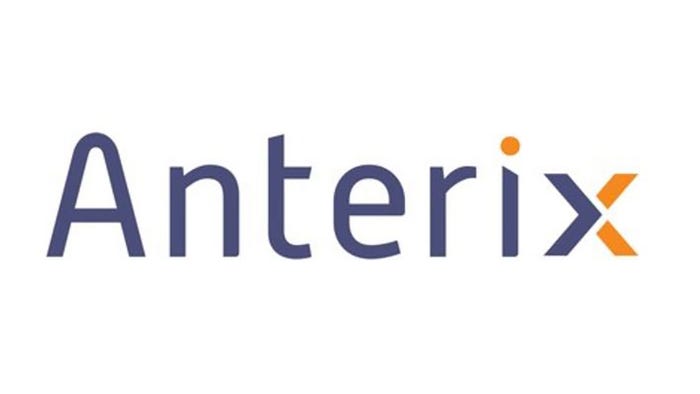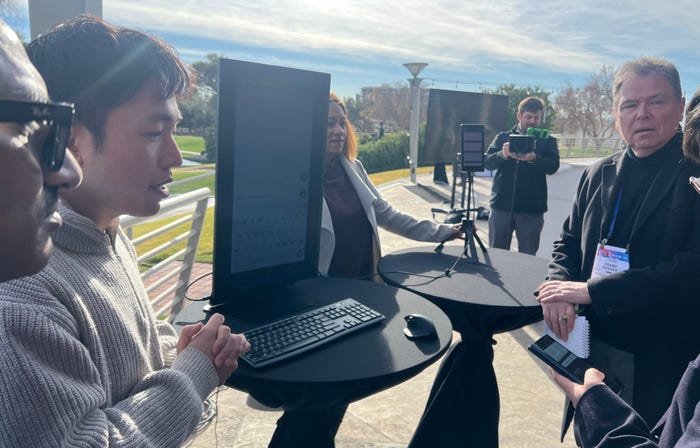Leaders outline struggles, benefits associated with ‘journey’ to NG911Leaders outline struggles, benefits associated with ‘journey’ to NG911

ORLANDO—Migrating public-safety answering points (PSAPs) to an IP-based next-generation 911 (NG911) platform is challenging and can include setbacks, leaders of two high-profile NG911 deployment efforts in the states of California and Texas said during an IWCE 2024 conference session.
Budge Currier (pictured above), assistant director of public-safety communications for California Governor’s Office of Emergency Services (CalOES), described his organization’s efforts to migrate 449 PSAPs in the state to NG911 as “the longest journey” but noted several benefits have been realized in the call centers that have completed the process.
“We’ve certainly got a faster, more-resilient system,” Currier said during the session, also noting location-information benefits. “We want to be able to improve the ability to manage these systems holistically, and we’re certainly seeing some advantages there … We can do better call routing and have reduced system downtime [among the PSAPs that have completed the NG911 migration].”
Currier said 19 PSAPs in California have completed the migration to NG911 to date, and all PSAPs are receiving text-to-911 messages via the NG911 platform. CalOES has embarked on a broad pre-migration testing initiative that is scheduled to result in NG911 deployment being completed by the end of this year.
Currier acknowledged that there have been many lessons learned during the process of pursuing NG911 in the state of California for several years, including the need to be able to independently validate that equipment meets standards.
Christy Williams, director of the North Central Texas Emergency Communications District (NCT9-1-1) that serves more than 40 PSAPs, said her organization’s journey recently included what she described as a “failure”—the need for a new next-generation core services (NGCS) procurement after terminating the previous contract in February.
In 2022, NCT9-1-1—which has been working toward NG911 for more than decade—issued an RFP for NGCS, and “it was interesting that some of the big players did not respond,” Williams said. The district’s desire for a partner willing to provide options may have been a factor, as well as the fact that her organization has become an independent 911 district rather than be part of the state program, she said.
“When we moved over [to become an independent 911 district], we came with zero dollars,” Williams said. “So, instead of those 30 years of reserves that everybody had, we started with zero.
“So, our financial situation changed, and for the first time in my career of being an early adopter, money was a thing [key consideration] … This time, we really had to look at the cost, as well—that was a little different.”
In October 2022, the district executed a contract with the chosen NGCS vendor, which was scheduled to complete the project in October 2023—a deadline that was extended last summer to March 2024, Williams said.
“But it became obvious that was not going to happen, so in February, we terminated our [NGCS] contract,” Williams said. “That’s a big deal.”
In light of the need to find a new NGCS vendor, Williams said she has reviewed the process and decision with the previous vendor on numerous occasions.
“When I look back to where we were then [during the previous RFP process], if I had the same information, I would have made the same choice,” Williams said. “It was the right choice at the time, with the information that we had.”
Williams advised other directors pursuing NG911 to “always have a Plan B,” in case an initial plan does not work.
Despite this episode, Williams said she remains optimistic about benefits of NG911 and encouraged others to pursue migration of emergency-call services to the technology. Even with the problems associated with the NGCS procurement, the NG911 effort has resulted in NCT9-1-1 PSAPs managing emergency calls better, with better location information and a network that features greater diversity of connectivity.
“When you’re sitting in that seat and have that headset on, you have options today that you did not have 20 years ago,” Williams said. “You can do things that help protect your responders and help protect your citizens.
“Overall—in the face of failure—I am still standing up here with my rose-colored glasses, saying, “Embrace the journey of next-gen 911. Don’t focus on getting there; focus on the journey … We’re always going to look to improve 911, and the only way you can do that is to make positive changes. So, join me on the journey. Who knows what the future has in store.”





